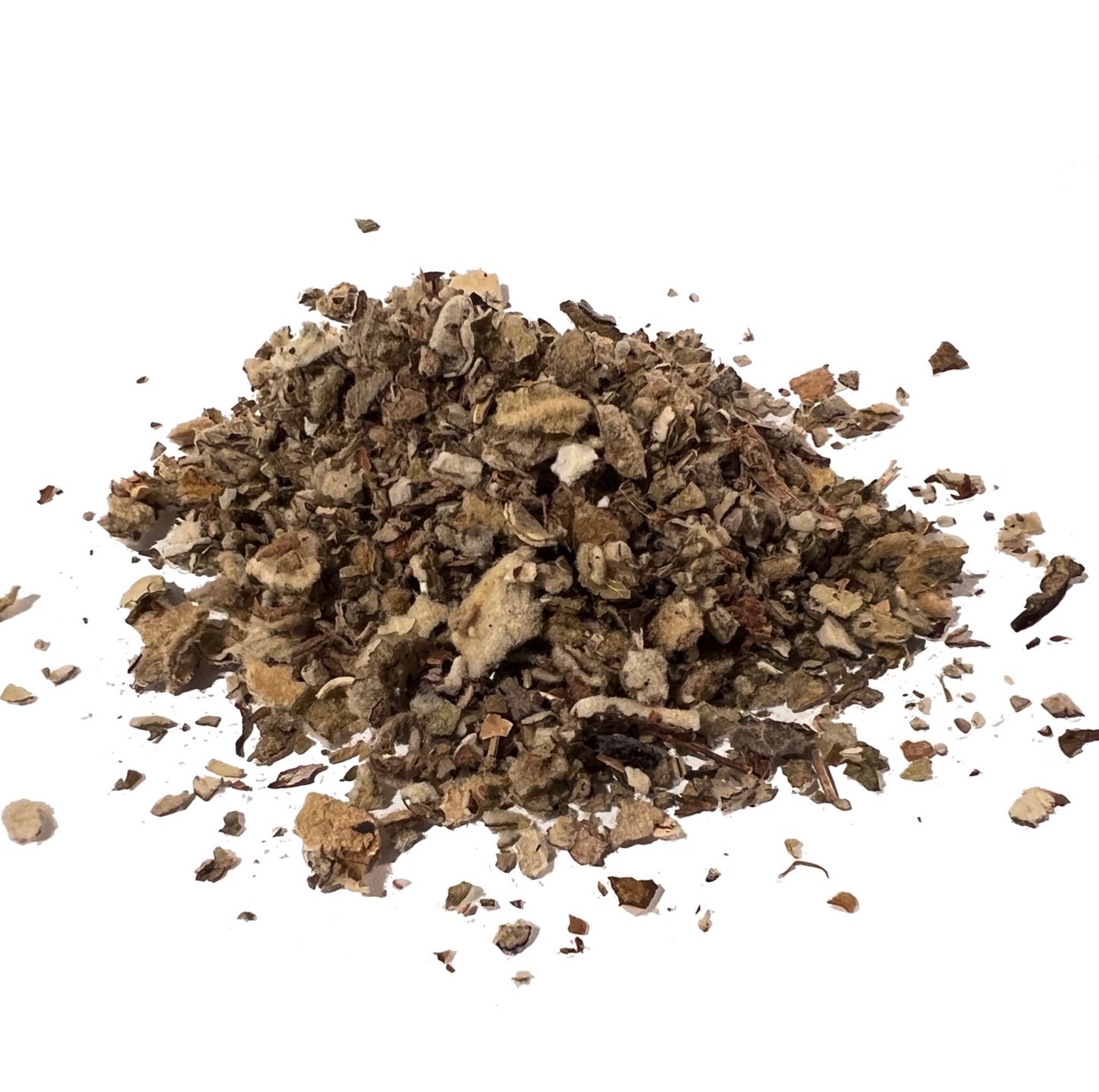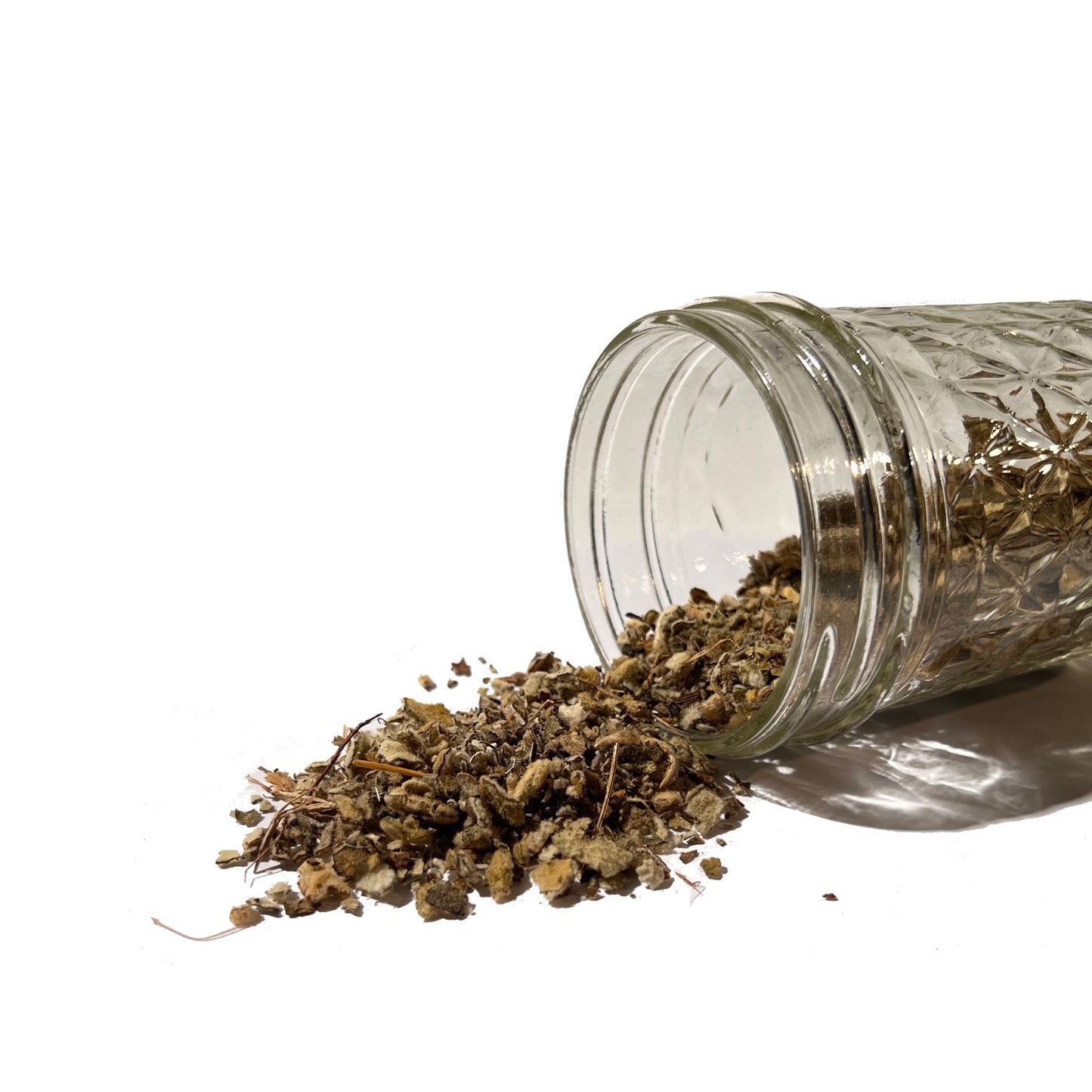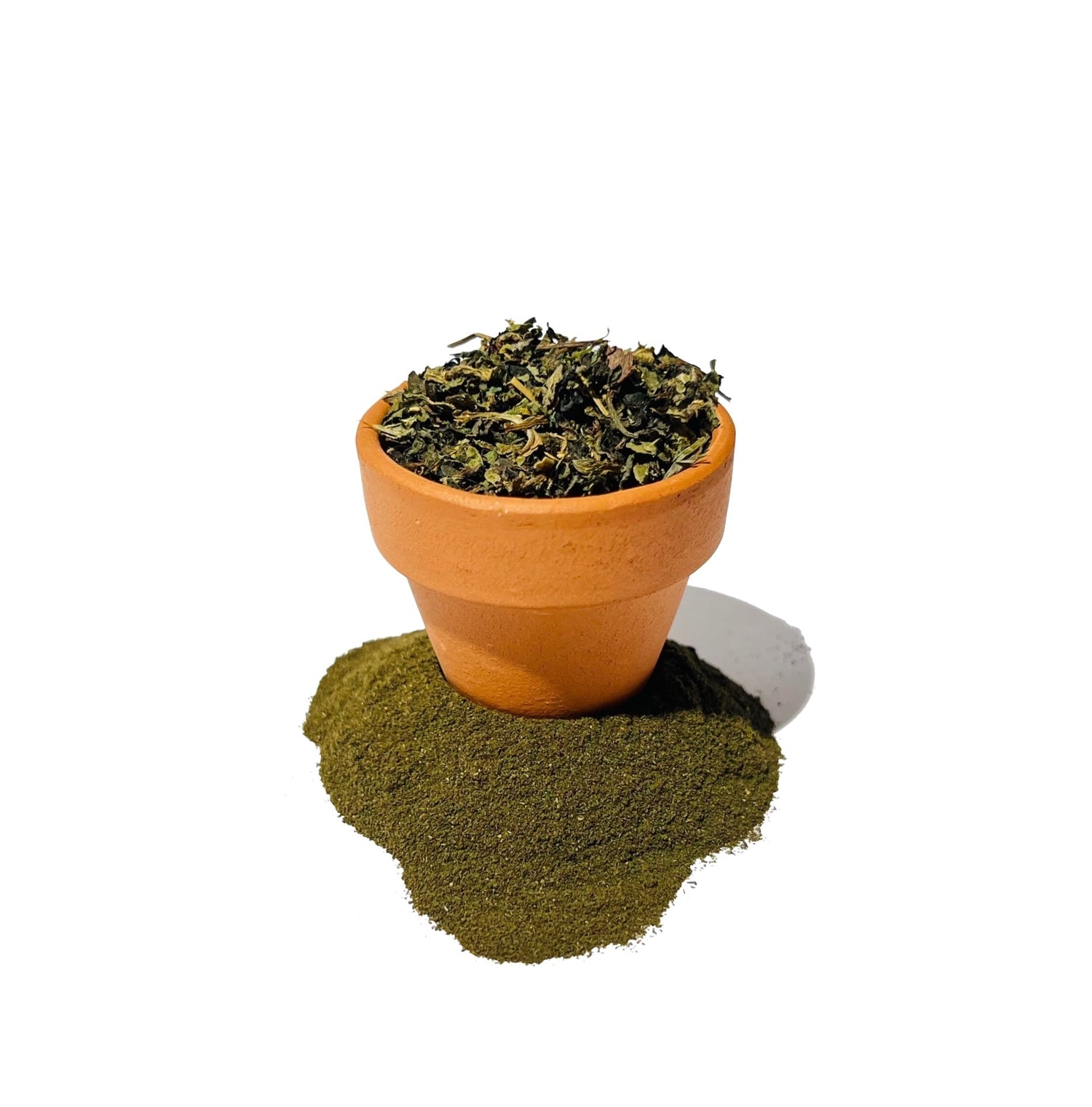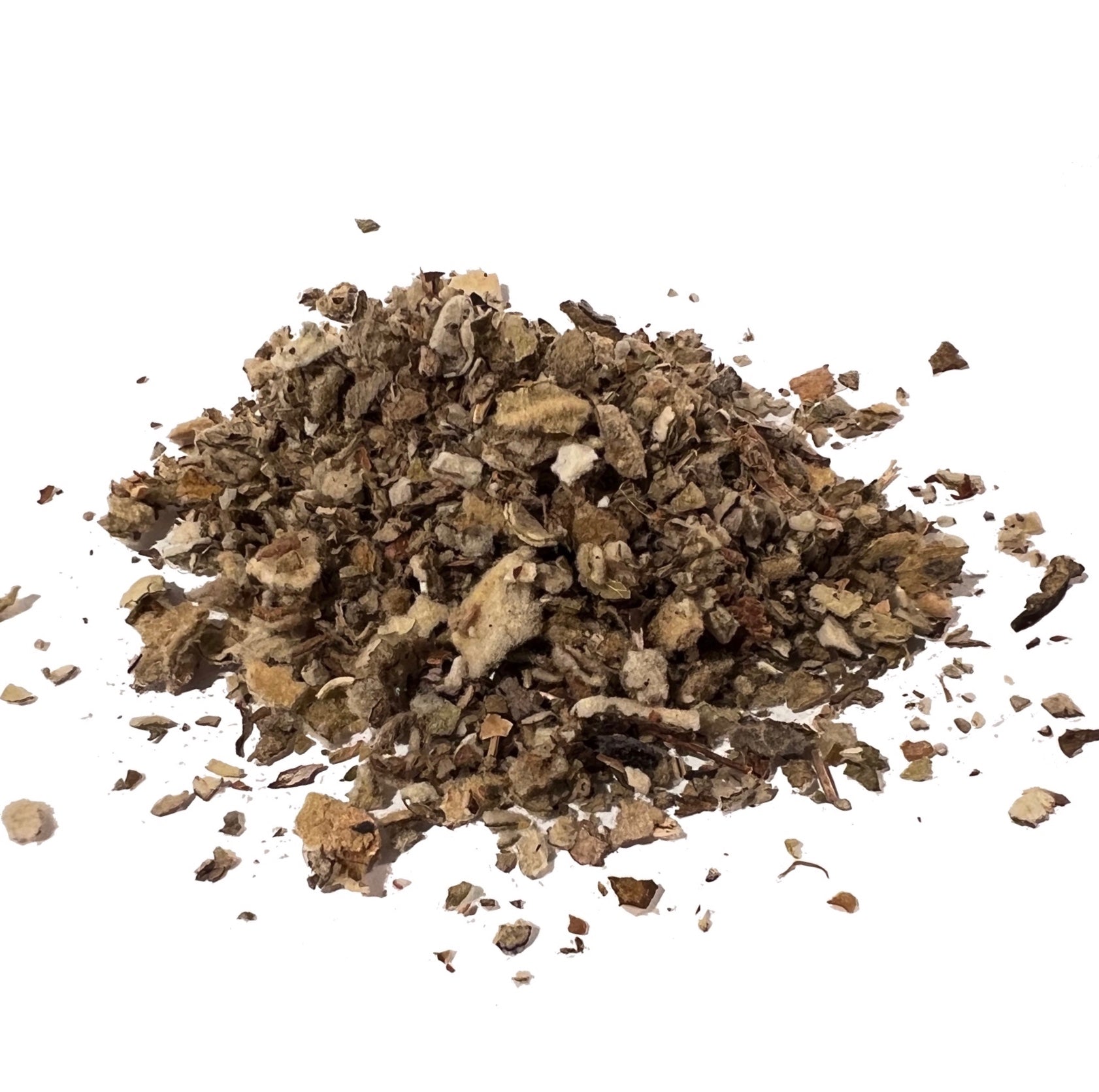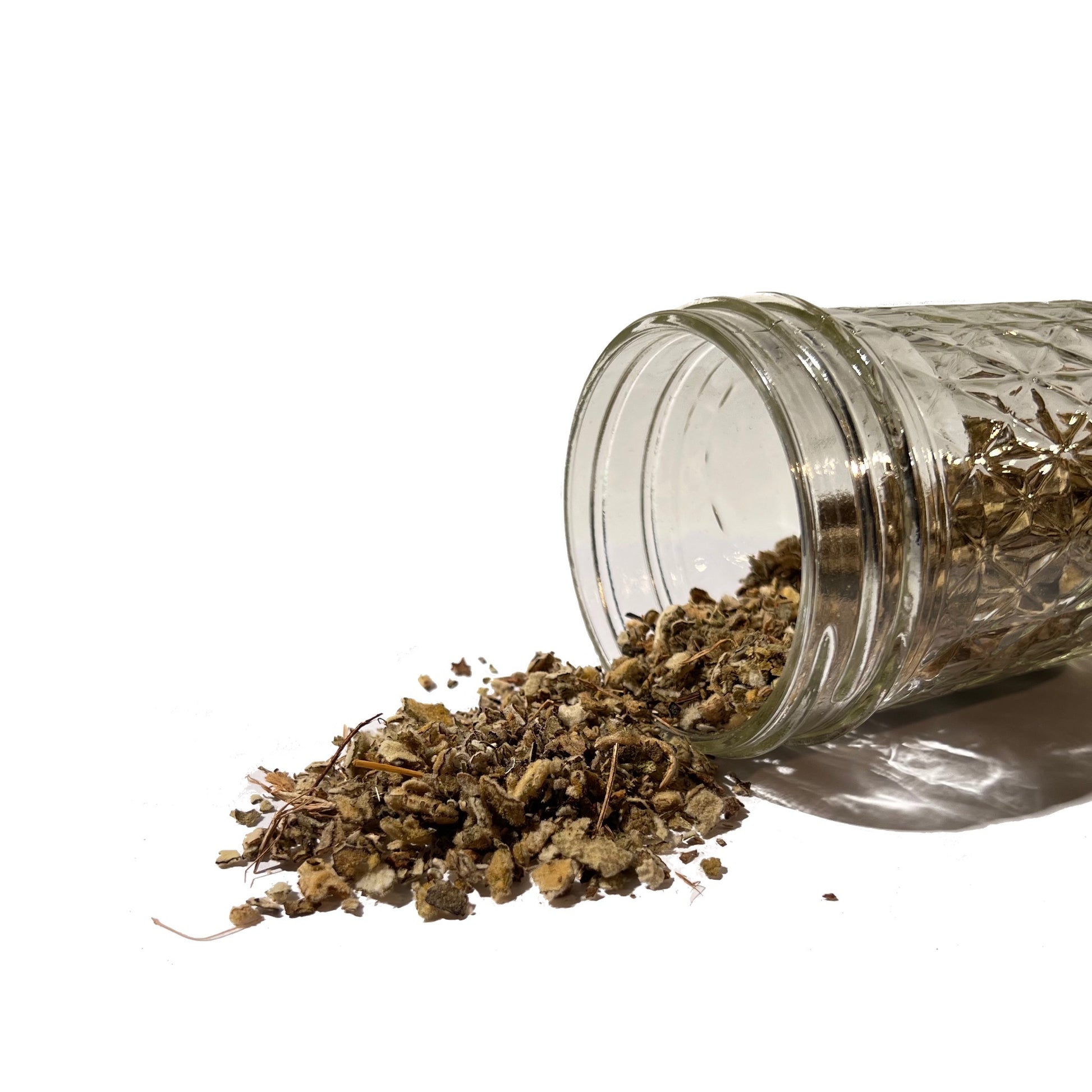Mullein Leaf C/S
Mullein Leaf C/S
Scientific Name: Verbascum thapsus
Preparation: Cut & Sifted
Place of Origin: Albania
Harvest Method: Wildcrafted
Mullein (rhymes with “sullen”) is a prolific biennial plant that has leaves and stems covered with soft, fuzzy hairs. Typical of a biennial, mullein forms a basal rosette of enormous, velvet-soft leaves in its first year of growth. In its second year, the plant shoots up a towering flower stalk packed with yellow flowers. The mullein plant is very prolific, and many consider it a weed.
Mullein leaves and flowers have long been used to soothe respiratory irritations — for example, asthma, coughs, colds, laryngitis, bronchitis, and COPD. The herb is an expectorant that looses mucus and a demulcent with soothing tissue-coating properties.
Today, mullein leaf is often prepared as a tea or infusion, then carefully strained to remove any fine plant hairs. The taste is mild, earthy, and slightly bitter. Cut and sifted leaves can also be used to make syrups, lozenges, and topical treatments like poultices, ointments and salves.
In stock and ready to ship
Couldn't load pickup availability
Shipping Information
Shipping Information
Free shipping on orders over $250
We currently ship to the contiguous U.S. only (excludes Hawaii and Alaska).
Orders are processed within 48 hours and shipped via UPS Ground (1–7 business days).
Expedited shipping isn’t available yet, but we’re working on it.
Shipping rates are calculated at checkout based on your zip code and order weight.
To view your rate, just add items to your cart and enter your address.
Product Safety
Product Safety
We recommend that you consult with a qualified healthcare practitioner before using any herbal products, particularly if you are pregnant, nursing, have any existing conditions, or are on any medications. This content is for informational purposes only and has not been evaluated by the Food and Drug Administration.
All material is intended for further processing.
